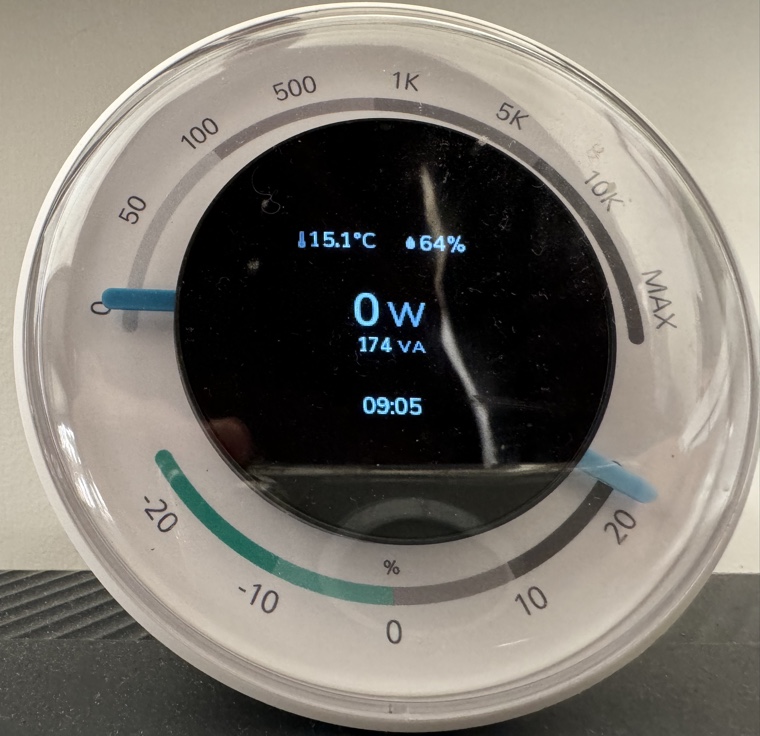A Unique Agreement for Sustainability
At the heart of iReplay.TV's green transcoding initiative lies a unique agreement with its customers. When clients opt for iReplay.TV's free transcoding service, they tacitly agree to a process that relies solely on excess solar power. This means that transcoding occurs only when the solar panels at iReplay.TV's offices produce surplus energy, thereby minimizing reliance on non-renewable energy sources. Additionally, customers understand that this approach may entail longer processing times, as it depends on the availability of solar power.
As of 9:05 AM on February 27th, the solar power generated at our office already exceeds the amount of electrical power being used.
Strategic Placement for Renewable Energy
Moreover, iReplay.TV strategically positions its transcoding infrastructure within 3 kilometers of a windmill farm in Brittany, France. This strategic placement ensures access to wind-generated power, further diversifying its renewable energy sources. Despite being located in a region known for its rainy weather, iReplay.TV leverages this climate to its advantage. Rainfall contributes to the hydroelectric power supply in Brittany, adding another layer of sustainability to its operations.The Limitations of Carbon Offsetting
While carbon offsetting is often touted as a solution for mitigating environmental impact, it's essential to recognize its inherent limitations, especially when compared to directly utilizing renewable energies. Unlike investing in renewable energy projects that directly contribute to reducing greenhouse gas emissions, carbon offsetting involves supporting projects that aim to counterbalance carbon emissions already produced. While these projects can have benefits such as reforestation or supporting community initiatives, they do not address the root cause of emissions. For instance, investing in a renewable energy project leads to a direct reduction in carbon emissions by displacing the need for fossil fuels. In contrast, carbon offsetting merely compensates for emissions after they have occurred, often through projects that may take time to realize their benefits or may not be permanent solutions. Additionally, there are challenges with verification, potential for complacency, and socio-economic impacts associated with carbon offsetting. Therefore, while carbon offsetting has its place, it cannot fully replace the urgent need for transitioning to sustainable energy sources to achieve genuine carbon neutrality and combat climate change effectively.Not only are iReplay's transcoding and packaging green, but they also come free. Any competitor is encouraged to do the same